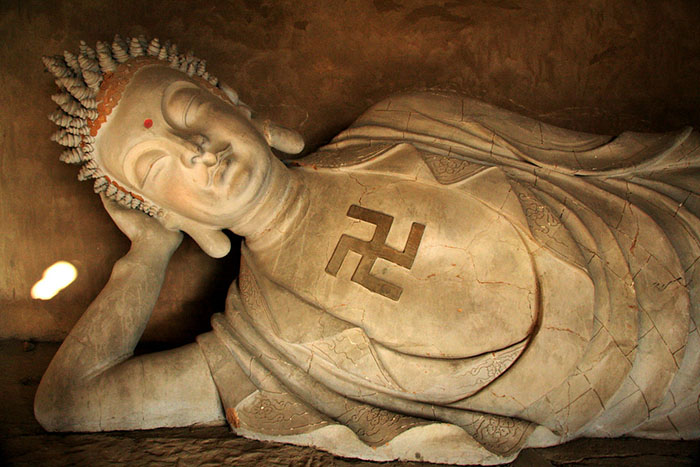Corrado Gnerre
Dear friend, your effort does a worthy work for the enhancement of the true roots of the West, so that – let’s face it frankly – we can become more and more attached to this West which seems to be more and more unwelcome. I wouldn’t want to be wrong, but Benedict XVI himself invited the West to love itself again. I link these reflections to what I have discovered in many of my work colleagues, that is an increasingly insistent fascination with oriental religiosity (Hinduism, Buddhism …). It seems to me that those who let themselves be fascinated by this religiosity not only do not fully know that of their own culture (Christianity), but also ignore the evident contradictions that exist in it. What do they think?
Dear (…), I answer by reminding you of a famous song by Giorgio Gaber that says: “I can’t digest the accelerated courses from Lenin to the East.” It is a song from the early 1970s, which speaks of a phenomenon that was still reduced at the time, but which would increase in the following years, namely the migration towards the “banks of the Ganges” of many disappointed ’68 and Marxists. Yet there was and there is a reason for all this. It is clear to everyone that a certain modern mentality is able to “flirt” with oriental religiosity much better than with Christianity. I specify that when I speak of “modernity” I mean a philosophical category and not scientific-technological progress as such.
Dear (…), “modernity” is a cultural judgment and not the washing machine, the hairdryer or the car, or the scientific-technological progress. Well, between “modernity” and Christianity there is a fundamental incompatibility, because it (“modernity”) was built on the claim of making man self-sufficient, god of himself, allergic to any authority external to his consciousness. Christianity, on the other hand, places itself in a completely different dimension, affirms that man is a creature and that God is creator, that man will always be dependent on and judged by God and that man cannot be fulfilled and saved except in belonging to God himself. Hence the incompatibility. On the one hand, in “modernity,” man must seek omnipotence; on the other hand, in Christianity, man must be passionate about his creature dimension.
With oriental religiosity, on the other hand, “flirting” is possible; in the sense that this religiosity not only does not condemn man’s claim to free himself from any judgment, but it reaches something bigger, it goes so far as to say that every man is God. Of course, he affirms it with a whole series of complicated arguments, but in fact it affirms it. He says that, since there is no difference in substance between man and all things and between man and the divine (monism), man, in his spirit, is an expression of the divine, he is God himself.
Dear (…), you understand well that this is a sweet melody for the ears of “modernity.” Being told “you are God” is the most “modern” one can hear.
But there is always a “but.” What is the use of being told “you are God” if you then have to convince yourself that you don’t exist? I’ll explain. Eastern religiosity, on the one hand, affirms that every man is God because he is a “spark” that is momentarily separated from the divine; on the other, it affirms that the individual self does not exist. It does not exist because every man would be a “spark” destined to return to the divine itself. Man as a “substance” would not exist. This is why we speak of reincarnation; because the individuality determined in human history would be apparent and transitory. Now, dear (…), let’s think: what is the use of being told “you are God” if you also say “you do not exist”; what do I do with my “divinity,” if I don’t exist? In short, oriental religiosity on the one hand gives, on the other it takes away!
Christianity, on the other hand, while affirming “you are not God, but a creature,” also says that individuality is not a wave on the surface of the sea destined to disappear into the sea itself, it is not an accident of the journey, but a lasting reality and eternal. It tells us that each of us will live as “I” for eternity. And this means that all the affections that we build in earthly life are not illusions, but lasting realities that we can meet again in eternity. In oriental religiosity, on the other hand, the affections count for nothing. If the individual self does not exist, who are we who love and who are the people who are the object of our love?
Dear (…), I think you now have good arguments to “chat” with your colleagues.
(From “La buona battaglia. Apologetica cattolica in domande e risposte”, 2019©Chorabooks. Translated by Aurelio Porfiri. Used with permission of the publisher. All rights reserved)


 Follow
Follow


